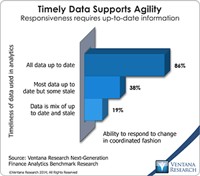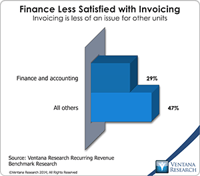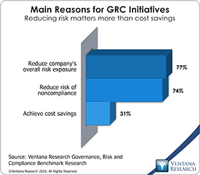Unit4, a Netherlands-based vendor of financial management software focused mainly on midsize companies, recently acquired prevero, a German vendor of performance management and business intelligence software. The acquisition reflects a convergence of transactional and analytic business applications, which I have written about. ERP and financial management software vendors increasingly are adding analytic capabilities – especially in financial performance management (FPM) – to the core functions...
Read More
Topics:
Office of Finance,
Business Analytics,
Business Performance Management (BPM),
Financial Performance Management (FPM)
Invoicing and billing are mundane business activities that hardly anyone outside of the accounting department cares about, but they are where the back office meets the front office. How well a company handles the process of getting paid by its customers can have an impact on its relationships with them. Like most of the details of business process execution, the impact of substandard invoicing and billing is rarely obvious or even of interest to senior management. That said, like trimming scrap...
Read More
Topics:
Office of Finance,
Cloud Computing,
Business Performance Management (BPM),
Customer Performance Management (CPM),
Financial Performance Management (FPM),
Sales Performance Management (SPM)
Today’s proponents of artificial intelligence (AI) tend to focus on its spectacular uses such as self-driving cars and uplifting ones such as medical treatment. AI also has the potential to aid humanity in more modest ways such as eliminating the need for individuals to do tedious repetitive work in white-collar areas. Along these lines, at its recent Vision users conference, IBM displayed an application of its Watson cognitive computing technology designed to automate important aspects of...
Read More
Topics:
Big Data,
Operational Performance Management (OPM),
Cloud Computing,
Governance, Risk & Compliance (GRC),
Uncategorized,
Business Performance Management (BPM),
Financial Performance Management (FPM),
GRC, governance, risk, compliance, risk management













